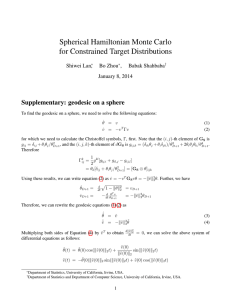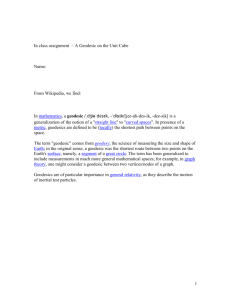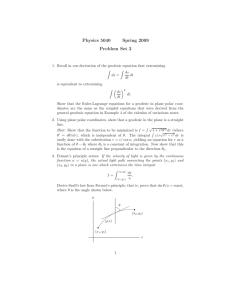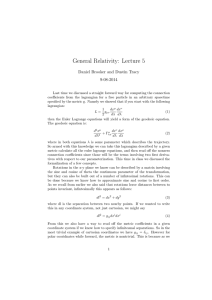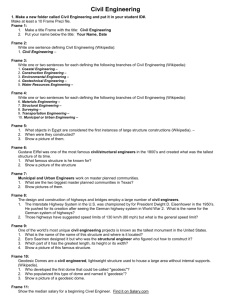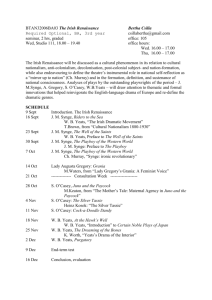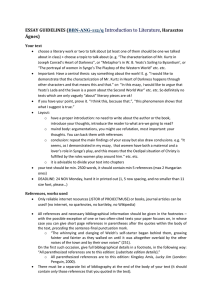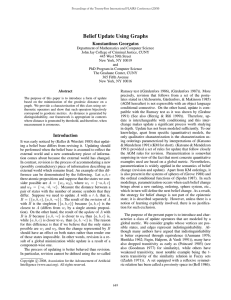GLOBAL WORLD FUNCTIONS FRANCO CARDIN and ANTONIO MARIGONDA
advertisement
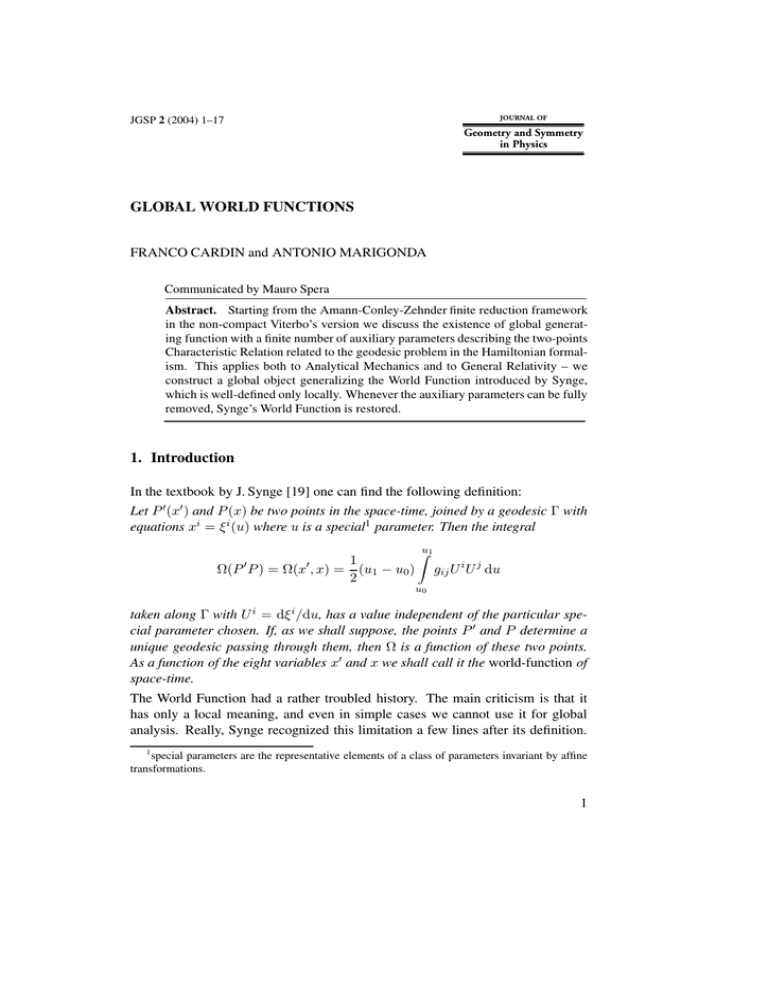
JOURNAL OF JGSP 2 (2004) 1–17 Geometry and Symmetry in Physics GLOBAL WORLD FUNCTIONS FRANCO CARDIN and ANTONIO MARIGONDA Communicated by Mauro Spera Abstract. Starting from the Amann-Conley-Zehnder finite reduction framework in the non-compact Viterbo’s version we discuss the existence of global generating function with a finite number of auxiliary parameters describing the two-points Characteristic Relation related to the geodesic problem in the Hamiltonian formalism. This applies both to Analytical Mechanics and to General Relativity – we construct a global object generalizing the World Function introduced by Synge, which is well-defined only locally. Whenever the auxiliary parameters can be fully removed, Synge’s World Function is restored. 1. Introduction In the textbook by J. Synge [19] one can find the following definition: Let P (x ) and P (x) be two points in the space-time, joined by a geodesic Γ with equations xi = ξ i (u) where u is a special1 parameter. Then the integral 1 Ω(P P ) = Ω(x , x) = (u1 − u0 ) 2 u1 gij U i U j du u0 taken along Γ with U i = dξ i /du, has a value independent of the particular special parameter chosen. If, as we shall suppose, the points P and P determine a unique geodesic passing through them, then Ω is a function of these two points. As a function of the eight variables x and x we shall call it the world-function of space-time. The World Function had a rather troubled history. The main criticism is that it has only a local meaning, and even in simple cases we cannot use it for global analysis. Really, Synge recognized this limitation a few lines after its definition. 1 special parameters are the representative elements of a class of parameters invariant by affine transformations. 1

